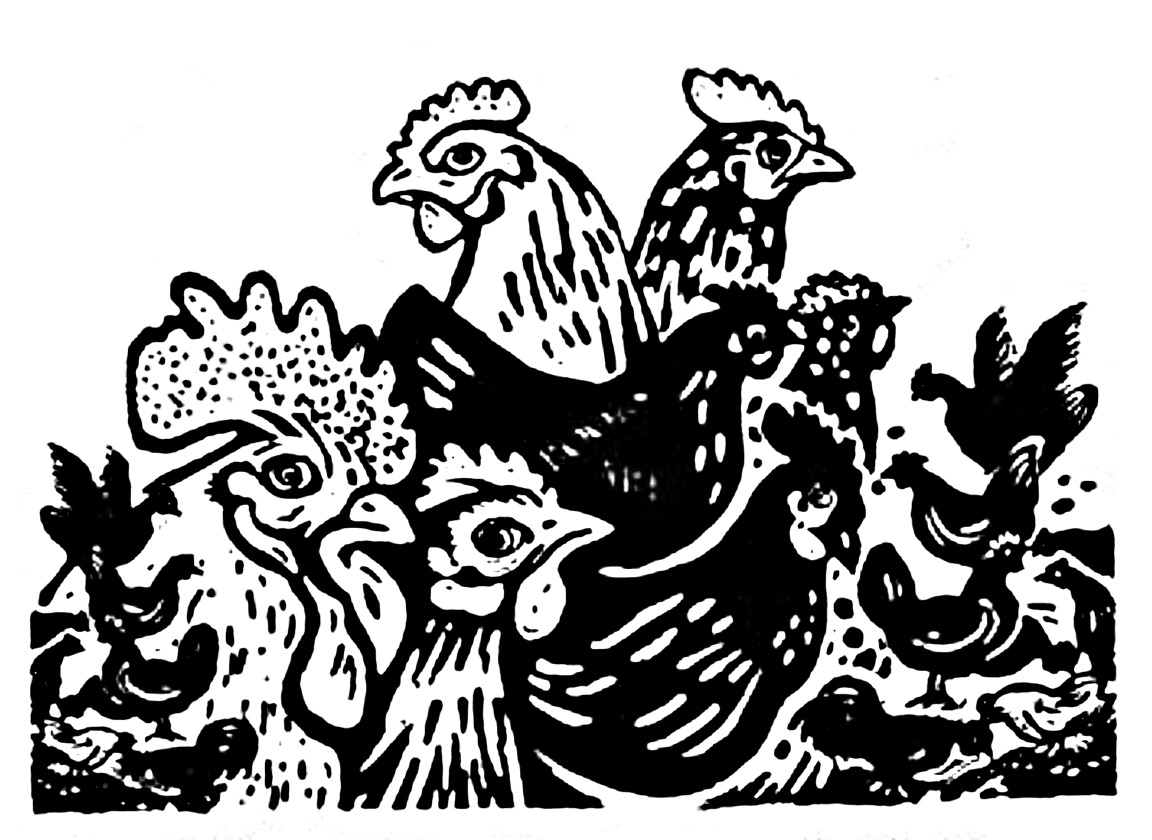Red Mite This grim little pest is a curse for the poor chicken, coming out of the crevices in the house at night and feeding like a minute Dracula on the hens’ blood. Left unchecked it will kill your fowl as they become anaemic and weak. If they get onto you, you will develop a form of St. Vitus dance as their bite is so irritating and they seem to get everywhere, in your ears, your hair, and, for one poor friend, his beard!
Prevention is by cleaning and dosing your house regularly with Chicken Vet Poultry Shield or Interkokask and the birds with red mite powder, available at all good poultry feed stores, but they are persistent so if you suffer an infestation then your vet may treat the birds with “off label” Ivermectin spot on and then advise a withdrawal period for eggs. If you are desperate to avoid chemicals, you may have some success with powdered fossil, which is meant to dessicate the mite or an acaricide in a spray – better as a liquid than a powder as the fluid will run into the crevices.
Common Fowl Louse An aptly named pest being both common and foul! It won’t kill your bird as it lives off the skin debris but it is irritating. Louse powder should sort it out.
Scaly Leg is another common problem and again caused by a mite which burrows into the scales of the chicken’s legs. Unlike the chicken’s normal nice smooth leg it transforms into one that looks as if it has terrible varicose veins. A vet will be able to prescribe you some treatment for this but if you think it has only just started you could try dipping the chicken’s legs in surgical spirit every few days or smothering them with Vaseline. If the hen has open sores on the leg avoid surgical spirit as it will be painful.
I’ve got to mention Bumblefoot here because it sounds just like something out of Dickens but is in fact an infection of the foot pads with bacteria found in the droppings. It can be caused by bruising so ensure that perches are rounded and not square, and not too high off the ground. Access to grass rather than concrete is important. Treatment is often ineffective so although an amusing name, not an amusing end, and therefore it is very important to ensure good hygiene and environmental management.
Infectious Bronchitis This is caused by a virus that normally produces respiratory signs such as sneezing, foamy eyes or swollen sinuses but it can infect the oviduct leading to wrinkled or misshapen eggs. It spreads very quickly through the flock and needs veterinary treatment.
If you have one hen laying wrinkly eggs she may be a carrier and the advice is to cull her. (Sorry!)
Worms If your chicken is off colour and her comb appears faded, check her droppings for signs of worms.
My oldest son, a vet, despairs of me as I have tried homeopathic worming treatment in the past and I think it has worked although it’s hard to know as it’s possible the chickens didn’t have worms in the first place! He would advocate Flubenvet for a week or if you’re unsure, your vet will do a worm count, usually for less than the cost of treatment, so if your birds don’t need it you haven’t medicated them unnecessarily.
If by now you are wondering why you keep chickens then wait for a sunny morning and wander down to the chicken run, cup of coffee in hand and watch them for a while. You’ll feel your breathing slow, your shoulders relax and a feeling similar to that of Lord Emsworth communing with his pig, the Empress of Blandings.
- words: Sheila Hume
You may also like
In the Night Garden
Jo Arnell explains how to make the most of your outdoor space once darkness falls Some enchanted evening you may see me outside – mainly searching for slugs in the garden, because the cool hours of night are when they...
Contain your excitement
Jen Stuart-Smith discusses how to get creative with your pots and planters My love affair with plants started with houseplants when I was a child. As my bedroom windowsill overflowed – resulting, occasionally, in waking up with compost under my...
More than just a pretty face
Jen Stuart-Smith explores the multiple uses of some easy-to-grow garden favourites When you grow flowers for their beauty, shape and colour it can be easy to forget all the other qualities they have to offer. Some are edible, others provide...










